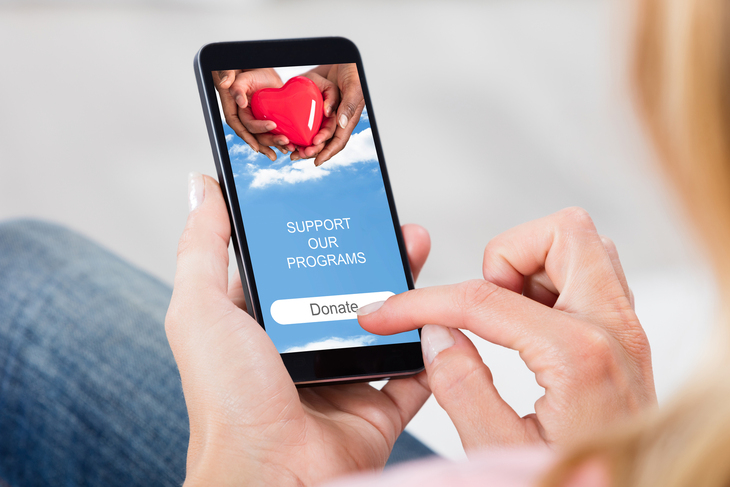Digitalization of information has made it easier for companies, fundraisers, and charity organizations to reach new audiences and engage them with their own goals. However, this means that there's a sea of information out there, so you need to come up with creative strategies to bring attention to your cause.
Auctions and fundraising events are some of the best ways to bring new people to your cause. Through this type of strategy, you can not only get new donors but also engage with new volunteers that can become an important part of your organization.
Luckily, several online platforms help nonprofit organizations to create online events to create awareness and raise funds. This greatly facilitates the possibility of organizing an online auction, for instance, by providing you with assistance at every step of the process so you can focus on raising funds.
Getting started
Organizing a fundraising event can be overwhelming. There are so many aspects that need to be considered, so it might be hard to take the first step if you aren’t sure about where to start. Research, careful planning, and hard work are key elements for creating any memorable event.
Before diving into the different fundraising events you can plan, let's dive into five steps for creating a successful fundraising event:
1. Set your goals
The first thing when hosting a successful event is to determine your goals. Every member of the organization needs to have a clear understanding of what success means to your cause and your event.
It is essential to take the time to determine exactly how much money you are expecting to bring in from the event. On the other hand, determining the right moment to launch an event will have an impact on the general cause. For example, if you have a large campaign and start with a fundraising event, this can be the kick-off for your cause, inspiring new donors and volunteers.
While raising funds may be the primary goal of this particular event, you can also use the event to facilitate other opportunities like:
- Acquiring new donors.
- Engaging prospective major donors.
- Creating awareness.
- Promoting your cause.
Keep in mind that setting quantifiable goals helps you measure your success and understand what strategies are the most effective.
2. Define your budget
You don't have to be a fundraising expert to know that even though the goal is to make money, you’ll need to invest to make the event happen. Of course, every event is different, so the budget will be different between an online auction or a 5k race.
If your budget is limited, it can be the main factor in determining what kind of event you want to host. Some of the items you’ll need to consider when planning a budget are:
- Venue
- Entertainment
- Catering
- Auction software
- Invitations
- Staff
- Promotional items
3. Create a team and delegate tasks
Once you have set the goals, gather your team to ensure everyone is aligned with the objectives. Before starting to consider the type of event, date, and place, you need to delegate all tasks and ensure no element is left out.
To properly prepare for the event, you can select some representatives to attend seminars to better understand everything that comes with a fundraising event. In addition, do some research on fundraising and nonprofit organizations.
4. Choose the right fundraising event
Now that you have set your goals, determined your budget, and created a team, it is time to select the type of fundraising event you want to host.
Understanding your target donors is key to choosing the event. Afterwards, you can answer some simple questions that will help you visualize the type of event that will interest your donors:
- Where do your donors live?
- Is there a specific demographic for your cause?
- How do they prefer to get involved?
Your goals will also help you choose the event. If you want to create awareness and attract publicity, the best option is a large, open event, like a walkathon. On the other hand, if your goal is to reach high profits with major donors, a private event would be the right choice.
Need inspiration? Here’s a look at some interesting fundraising ideas:
Webinars, panels, and lectures
One of the essential functions of your nonprofit is educating your supporters. The better they understand your cause and the impact it has, the easier it will be for them to engage with your organization and become donors.
Educational fundraising events help you in two ways; they help you get closer to your possible donors while bringing in funds. One of their key values is that they can be in-person or virtual so that you save on expenses.
To raise funds through an educational fundraising event, you can charge an admission fee and set up a donation box — whether it be virtual or physical.
A-thon style events
Often with a-thon style events, you will ask your supporters to do physical activity in order to raise money. Of course, you need to make sure to find an activity that motivates your supporters to participate.
Using your database you can create a survey to ask them to vote for their favorite activity. Some of the most popular a-thon activities are:
- Walk-a-thons
- Bike-a-thons
- Swim-a-thons
- Dance-a-thons
- Bowl-a-thons
- Read-a-thons
Keep in mind that choosing an activity related to your cause will make a greater impact on participants. For instance, if your cause is related to education, a read-a-thon would be the perfect choice.
Auctions
The greatest thing about auctions is that you can host an in-person auction, a virtual auction, or even a hybrid fundraising event. The right choice will depend on many factors, but keep in mind that virtual auctions have gained traction over the past years, and they continue to grow.
Depending on your organization's capabilities, resources, and supporters’ interests, you can choose the most suitable format. Let's see the main features of each alternative:
In-person auctions:
Meeting face-to-face and socializing with your supporters is a great opportunity. The social element of the event can make an important impact on donors, making them feel more motivated and engaged with the cause. In addition, the excitement of last-minute bidding can significantly increase final bids, bringing in more funds.
Virtual auctions:
Virtual auctions can help you reach a wider audience with a smaller budget. By simply sharing the online auction platform, you can increase the number of bidders. Also, it offers some flexibility for the participants and can even motivate shy bidders to make their bids within the time limits of the event.
Keep in mind that no matter the format, you need to carefully choose what items will be up for auction. Here are some items supporters will likely feel attracted to:
- Services and experiences: Sometimes, the most popular auction items aren't physical. They can range from packages to vacations, spa certificates, or even something as simple as a haircut.
- Items made by local artists and artisans: People love buying unique and exclusive items, especially if they are created by someone in the community. Paintings, furniture, and jewelry make excellent alternatives. In addition, establishing a contact network with local artists can help your cause gain traction.
- Prize baskets or bundles: This is an excellent strategy to increase the value of individual items. Auctioning several small items as a single prize can be highly appealing for buyers. For instance, you could put together a hair-salon certificate, candles, body lotions, and wine and create a "relaxing day" prize basket.
5. Promote your event
No matter how carefully you plan your event and how attractive you make it, if people don't know about it, they won’t attend. To get the word out, you need to plan a marketing strategy to help you reach your audience.
The first thing you need to keep in mind is that an effective promotional plan needs to leverage multiple channels, online and offline. The more people that know about your event, the more potential donors you'll have.
To promote your event offline you can print flyers or posters and place them in strategic locations around the city. Reaching out to radio stations and giving interviews about your cause and your event will help you reach an important part of the population that may be unfamiliar with digital channels.
But of course, in a digital era, offline promotion isn't enough. You need to focus on a digital strategy to attract supporters and donors and engage them with your cause and event.
Incorporate these techniques to help your organization leverage more support and engagement for your event:
- Use your social media channels.
- Maintain and optimize your website.
- Create a landing page for the event.
- Launch an email campaign.
- Leverage influencers, YouTubers, and podcasters.
Don't forget to advertise in advance. Don't wait until the week before the event to use your channels to let people know what you're working on.
Auctions and fundraising events are a big help for charity causes; they engage supporters, build awareness, and bring in funds. Next time your organization is planning an event or auction, remember that you will need a thorough plan and the right strategies, online and offline, to be successful.
Share this
You May Also Like
These Related Stories

How to market walk-a-thons and other impactful fundraisers

The complete guide to online fundraising (with 15 top ideas)

.png?width=150&height=63&name=Feathr%20Logo-Main%20(1).png)
